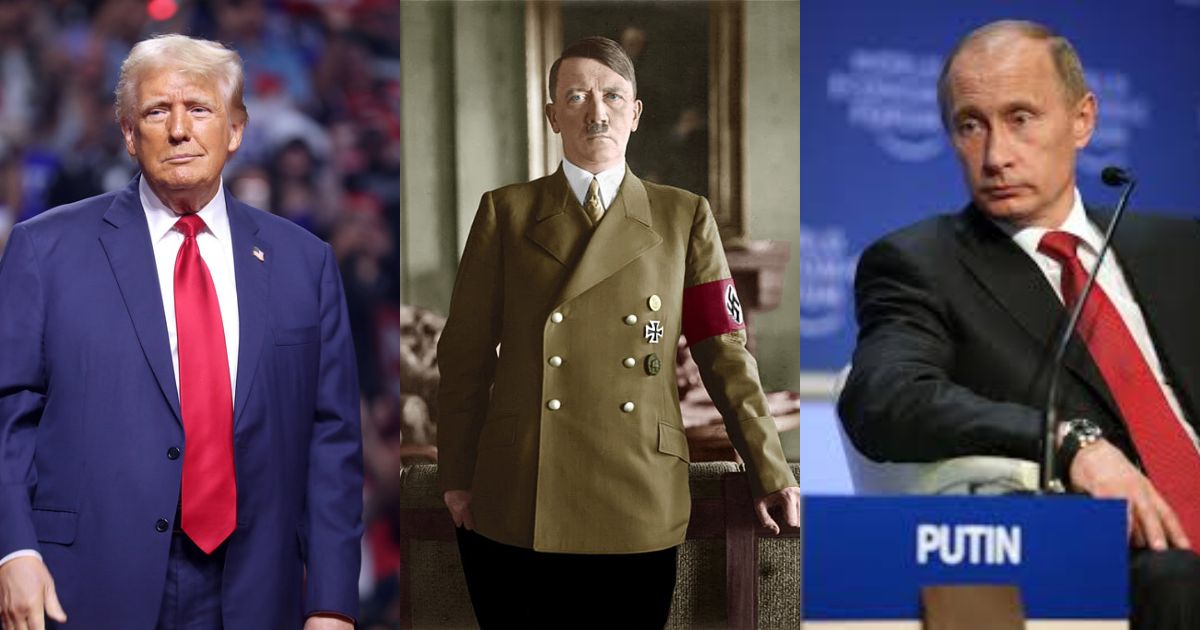Disclaimer: This article contains details of death. Reader discretion is advised.
Narcissism and narcissists are everywhere; they are people whose character is inflated self-image and addiction to fantasy, and by an unusual coolness, shaken only when the narcissist is challenged.
These people are usually charming and controlling and have a way of manipulating people to get what they want. While it’s a full-fledged personality disorder, many people have classic narcissistic traits that others can determine.
Political scientist Yusuf Çifci of Muş Alparslan University in Turkey suggests that the extreme narcissistic traits seen in Adolf Hitler, Vladimir Putin, and Donald Trump may stem not only from ambition or ideology but from unresolved emotional trauma rooted in early family life. “Narcissists are gods who worship themselves,” Çifci writes, quoting from the writings on narcissistic personality disorder. “They cannot be cured because ‘Gods do not get sick.’”
View this post on Instagram
As per sources, while numerous psychologists have long marked connections between narcissism and leadership, Çifci’s research takes a different route. It was published in Frontiers in Psychology. He dives into the formative years of these leaders and talks about the early childhood experiences of leaders and how their parents treated them.
Yusuf Çifci says that people like Trump and Hitler possess confident and charming traits but hide deep insecurity. In addition, Çifci explains that all children go through a stage where they think they are the center of the world. This stage passes in a healthy home environment, and the child grows into an adult with good self-esteem and values.
View this post on Instagram
However, when a child is raised in a home with emotional pain, neglect, or harsh discipline, they may develop something called pathological narcissism. This is when people create a fake, “grand” version of themselves to cover up feelings of worthlessness or fear. This version of narcissism can become dangerous, especially when that person gains power.
The study found that Adolf Hitler, Vladimir Putin, and Donald Trump all grew up in similar childhood patterns. Hitler’s father was fierce and strict, often beating him. His mother, however, adored him and gave him lots of affection, especially after losing other children.
Putin grew up in sorrow and neglect as he was seen as the replacement child after two siblings died. His father also hit him, and his mother, Klara, loved him deeply. His biopic under his name has showcased his childhood in detail. Meanwhile, America’s most popular political figure, Donald Trump’s father, Fred Trump, was cold, strict, and solicitous.
His brother, Robert Trump, struggled with alcohol addiction in 1981 and died. After which, the 78-year-old vowed never to touch alcohol. So, he’s also seen his fair share of trauma and agony. In addition, Donald Trump was sent away to a military school at age 12, something Donald saw as rejection. Trump also lost his older brother to alcoholism, which added more emotional pain to the family.
View this post on Instagram
All three leaders, therefore, act tough on the outside or have tough ways to showcase power. Still, in reality, they are rooted in deep private insecurities. That’s why even Adolf Hitler, who was deprived of love, blamed others for his problems in his suicide note in 1945. (A lot of people have theories about his death.).
Similarly, Trump’s words are often ruthless as he attacks anyone who disagrees with him and expects loyalty from people.
Vladimir Putin, likewise, keeps tight control of people, a trait he saw his father doing. Therefore, we can conclude that all the leaders have these common signs: early trauma, confusion, a difficult childhood being raised by strict parents, witnessing abuse, and the downside of addiction.
View this post on Instagram
Lastly, Çifci says that narcissists “worship themselves” and don’t believe they can be wrong or weak; therefore, as citizens, we should be aware of their leadership style and try to understand the root cause and not just fall for their PR image or false promises. Confident people should be brave enough to face their past and grow from it.









